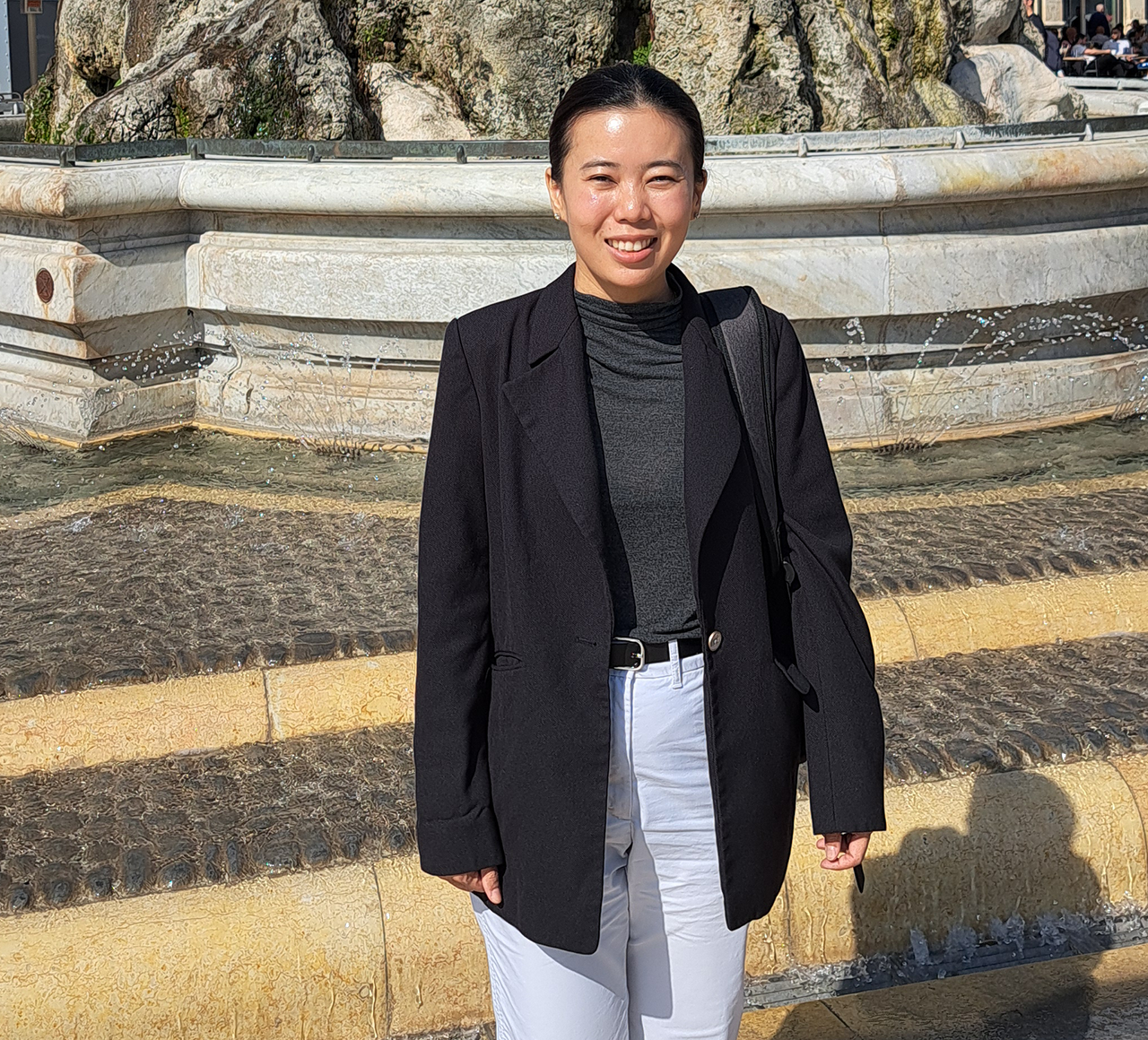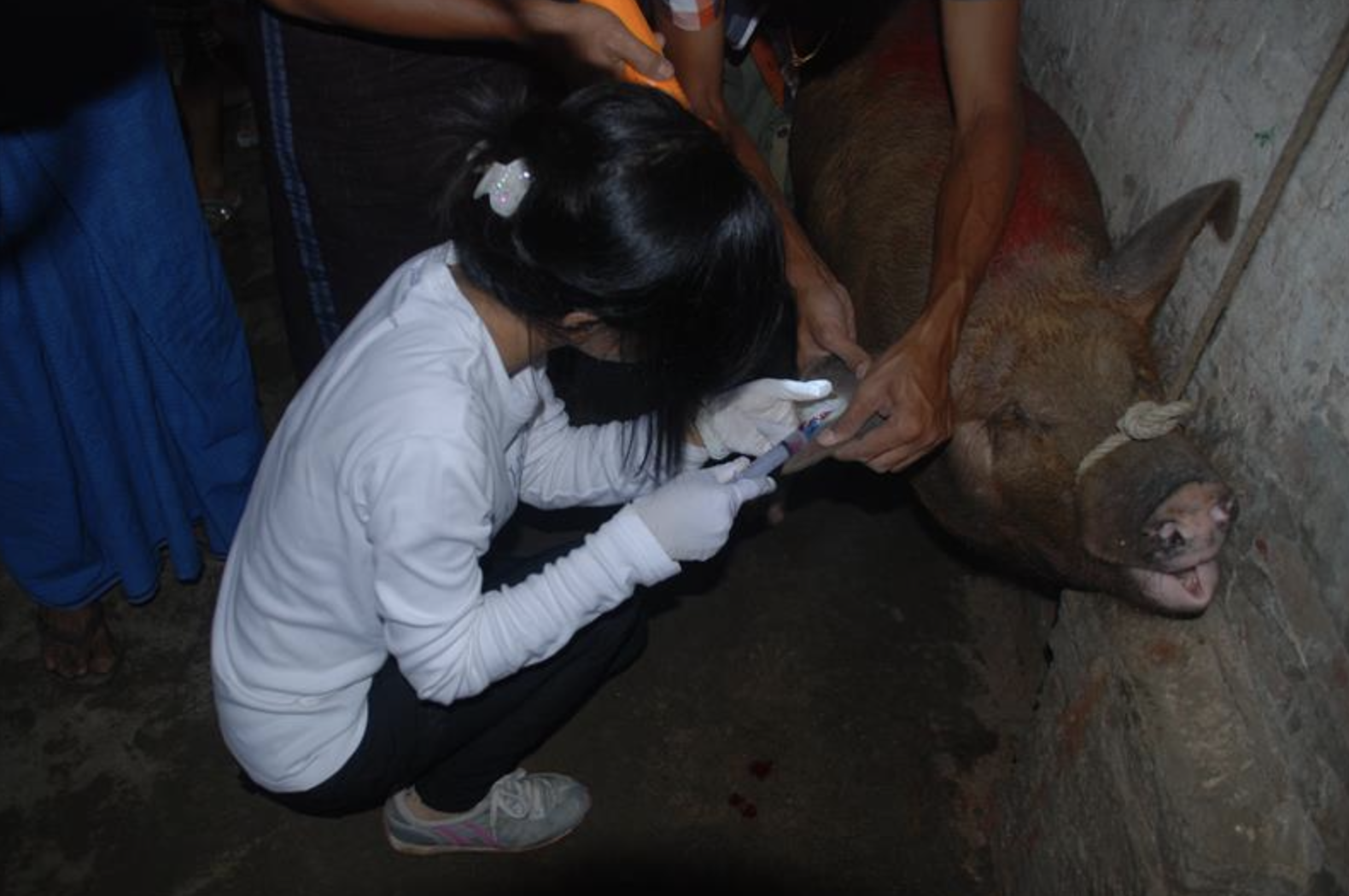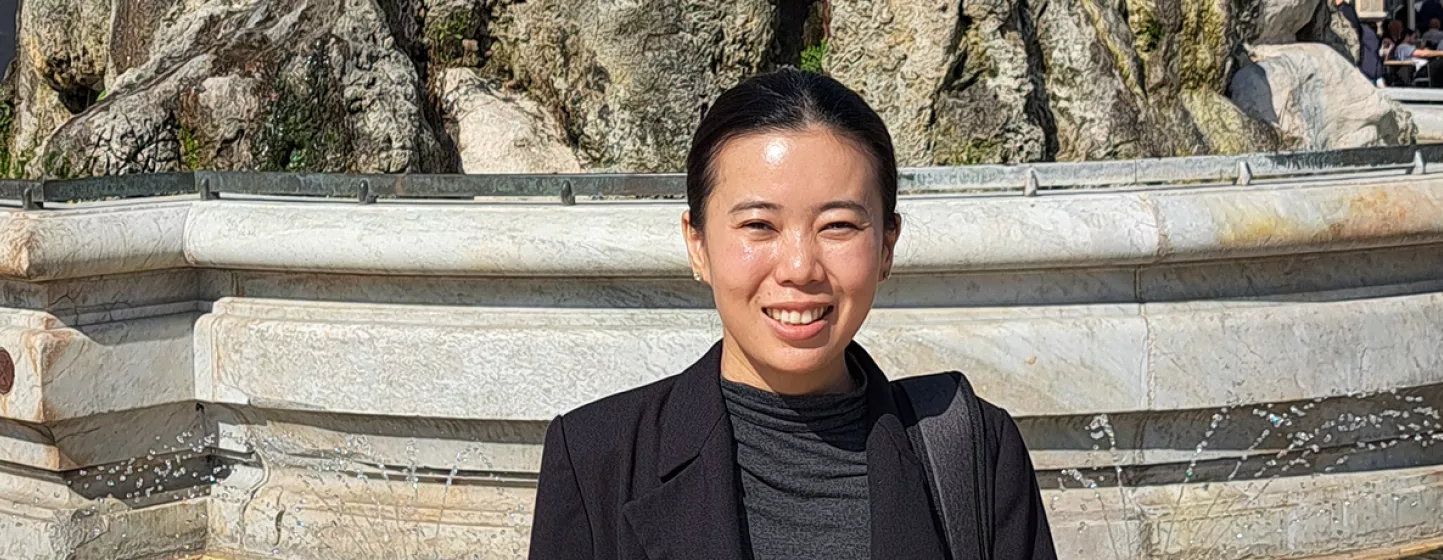Tu Tu Zaw Win, ambitious connection builder
A Burmese veterinary epidemiologist, Tu Tu Zaw Win, 35, is seeking to reconnect humans, animals and the environment. Specialising in the One Health approach, she is in her element as a trainer of journalists for the Media, One Health project.
Don't be fooled by appearances. Small in stature, with a shy smile, Tu Tu Zaw Win has always dreamed big. "As a child, my sister loved a challenge and worked hard! She was interested in the planets and dreamed of becoming an astronaut!”, fondly recalls Ngu War Zaw Win, Tu Tu's younger sister. The eldest sister confirms this and details her background: "Having a lot of very busy family members working in hospitals, I didn't want to become a doctor. So I chose veterinary studies, but I was a bit bored in the 1st and 2nd years..." After a bachelor's degree in veterinary science, Tu Tu was more inspired when she began studying epidemiology and diseases of human and animal populations: "That's what interests me! I like to analyse the figures and make predictions about the future”.
Thrust forward by her passion, Tu Tu Zaw Win obtained a master's degree in Myanmar and then a doctorate in veterinary epidemiology in Australia. She went on to specialise in the environment, public health and infectious diseases in Hong Kong. The "One Health" approach* seems to be made for her: "This concept made me aware of the interconnection between humans and animals. Today, even if I didn't want to work in a hospital, with this collaborative approach, I also need to have knowledge of medicine and human illnesses."
Common platform for journalists
Tu Tu now explains this concept to the journalists she trains for CIRAD (Centre for international cooperation on agricultural research for development) as part of the CFI project. Media, One Health: "In September 2024, the Filipino journalists taking part were very committed and said to me at the end of that session, ‘we should have known about this concept before!’ I hope they will now be able to carry out reports for the public." Tu Tu Zaw Win brings her hands together one last time to state her wish for the remainder of the project: "I would like to encourage the various players to meet and share their information on a common platform for journalists."
In Montpellier (south-east France), where she will be spending a few months in 2024 (before continuing her mission at CIRAD in Thailand at the end of the year), her expertise and ability to create Tu Tu style connections were also a hit! "Very conscientious and a good listener, she has a very good knowledge of health systems in Asia, but is also open to debate based on political science", says her colleague Julie Meunier, who is in charge of research into Science-Society-Policy dialogue, the One Health approach at CIRAD, the Unit.. ASTRE (Animal, Health, Territories, Risks and Ecosystems)! In her own way, Tu Tu Zaw Win has begun to achieve her dream of becoming an astronaut...
Portrait by Emmanuel de Solère Stintzy


*The “One Health” approach invites us to think differently about health, recognising the interdependence of the wellbeing of humans, animals and the ecosystems they share on our one planet. It uses the close and interdependent connections between these three facets to develop new methods for monitoring and preventing disease (source: World Health Organisation).
